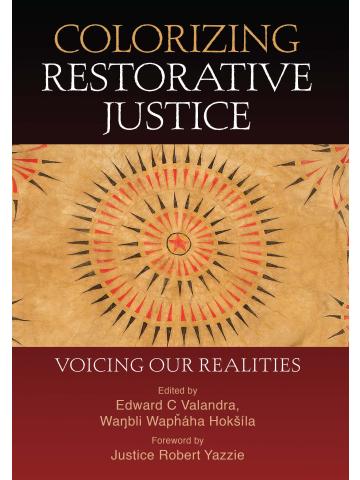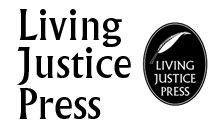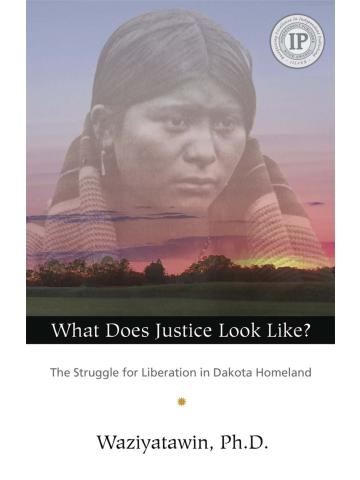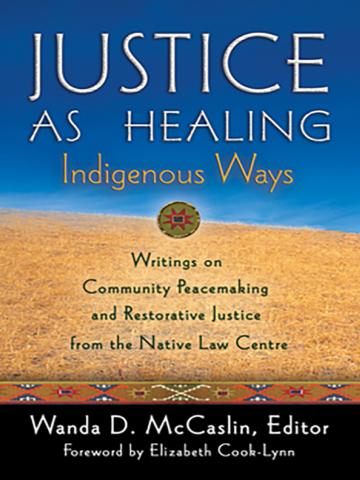
*****IF YOU WISH TO ORDER HARD COPIES OF OUR BOOKS, PLEASE VISIT https://livingjusticepress.org*****
ISBN: 978-1-937141-24-0
Twenty restorative justice practitioners of color relate their experiences in the field, examining the inherent contradiction of using these practices within Western, White dominant, settler societies. Discussion questions and suggested activities included.
Edited by Edward C Valandra, Waŋbli Wapȟáha Hokšíla, Foreword by Justice Robert G. Yazzie, Contributors: Desiree Anderson, Rochelle A. Almengor, Michelle Armster, Belinda Dulin, Leon Dundas, Sharon Goesn-Bradley, Janice Jerome, Gaye Lang, Erica Littlewolf, Shameeka Mattis, Abdul-Malik Muhammad, Christina Parker, Christianne Paras, Gilbert Salazar, Victor Jose Santana, Barbara Sherrod, Johonna Turner, Anita Wadhwa, Sheryl Wilson
Twenty authors of color raise probing issues about restorative justice and restorative practices (RJ/RP)—issues of racial justice and complicity in ongoing structural harms. We name the inherent contradiction between restorative practices and the Western, white supremacist, settler societies in which we practice them. People of Color and Indigenous Peoples (POCIP) have not created the contradiction. It is there. But POCIP collectively experience this contradiction in ways that Whites do not. We feel an urgency about addressing this contradiction that our White settler colleagues seem not to perceive or express. We also feel an urgency about critically informing communities of color and Indigenous communities that this contradiction, while not of our making or choosing, is one that POCIP negotiate not only in our daily lives but also professionally in our restorative work. Colorizing Restorative Justice calls everyone in the RJ/RP movement to engage in critical self-reflection around these issues, so that the movement can build the integrity, transformative power, and effectiveness that we believe is also inherent in the restorative justice philosophy and practice.
Reviews for Colorizing Restorative Justice
Colorizing Restorative Justice is a much anticipated and mighty act of truth-telling! These stories arise from the lived experiences of a broad range of seasoned, loving restorative justice practitioners of color, mostly women, who fiercely unearth realities about the devastation caused by white practitioners who unthinkingly work without a racial or social justice consciousness. Required reading, Colorizing is a wake-up call for European-descended restorative justice practitioners. It is validating for Indigenous practitioners and practitioners of color and enlightening for anyone wishing to explore the intersections of indigeneity, racial justice, and restorative justice.
— Fania E. Davis, African-descended, PhD, JD, author of The Little Book of Race and Restorative Justice, founding director of Restorative Justice for Oakland Youth (RJOY), and a leading national voice on the intersection of racial and restorative justice
The journey of the modern RJ movement, now decades old, sadly, as a collective, has for the most part missed, watered down with romanticism, and in many cases intentionally and sometimes unintentionally excluded the voices represented here.… It is my hope they land on ears willing to hear their wisdom that will enrich and perhaps even transform the RJ journey, even when the wisdom is uncomfortable.
— Harley Eagle, member of the Wapȟáha Ská Dakȟóta First Nation, facilitator and consultant in, among other things, anti-racism, decolonization, and trauma-informed practice
In my over forty years as a teacher, researcher, lawyer, and social activist, … I have read scores of books addressing issues of race and justice. This book stands out amongst all these works. It is unique in its penetrating exploration of the lived experience of people of color involved in restorative justice, coupled with an excellent analysis of the larger colonial structures that perpetrate inequality and racism.… [T]his is a must read not only for those in restorative justice, but also for others, like myself, who address issues of race and justice.
— Charles E. Reasons, White settler, PhD, JD, Law and Justice Professor at Central Washington University, author-activist on social and legal problems in the US and Canada



